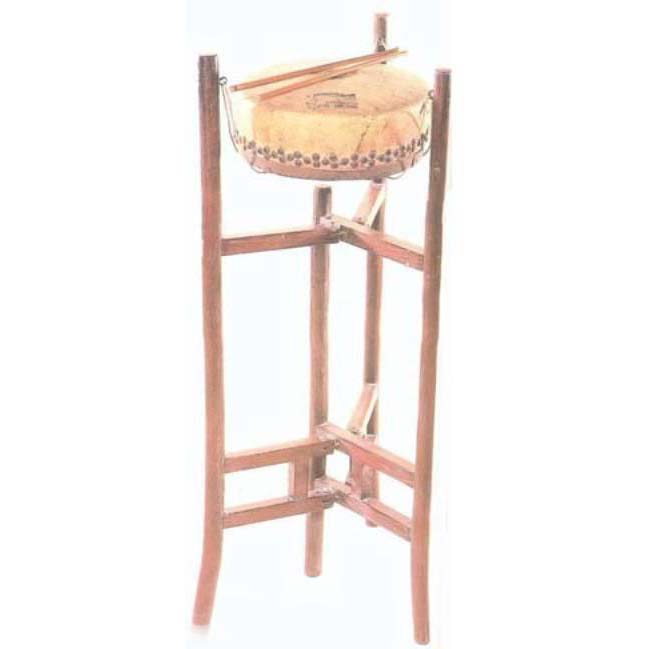bangu overview
 Bangu (Pinyin: bǎn gǔ) is a kind of percussion instrument, also known as Mingpi and Bangu. The "Jiegu" used in Qing music in the Tang Dynasty may be its predecessor. It has a long history in the folk. The "Continued Documents of the Qing Dynasty" contains: "The bangu, also known as the drum, has an urgent sound and chews, and is the leader of each utensil, and it is not easy to strike." It is the conductor instrument in the Chinese opera orchestra.
Bangu (Pinyin: bǎn gǔ) is a kind of percussion instrument, also known as Mingpi and Bangu. The "Jiegu" used in Qing music in the Tang Dynasty may be its predecessor. It has a long history in the folk. The "Continued Documents of the Qing Dynasty" contains: "The bangu, also known as the drum, has an urgent sound and chews, and is the leader of each utensil, and it is not easy to strike." It is the conductor instrument in the Chinese opera orchestra.The plate drum has a unique structure and a crisp sound. With the development of opera art in Ming and Qing dynasties. It has been passed down from generation to generation and has been handed down to the present. It is widely used in Kunqu Opera, Peking Opera, Pingju Opera, Yue Opera, Han Opera, Henan Opera, Hebei Bangzi, Shandong Bangzi, Shaanxi Bangzi, Shandong Liuzi and other local opera accompaniment and instrumental ensembles. allegro drum in ). In the accompaniment or ensemble, it often occupies the position of conductor and lead. In Peking Opera music, where characters appear, sing, and change the plot, in addition to commanding with various striking postures and percussion sounds, they also play the rhythm with the clapboard to add flair to the performance of gongs and drums, and enhance the atmosphere of the stage. and characters.
As early as the Tang Dynasty (618-907), it was used in "Qing Yue", and it was called "Jiegu" at that time. During the Sui and Tang Dynasties, it has been used in the "Qing Yue" of Sui Jiu Music and Tang Shi Shi Music, and it was called Jiegu at that time. With the development of the art of opera in the Ming and Qing Dynasties, it was widely used in the accompaniment of local operas such as Kunqu Opera and Peking Opera. In the Qing Dynasty, it was also called the drum. The "Continued Documents of the Qing Dynasty" contains: "The bangu, also known as the drum, has a fast sound, and is the leader of each instrument, and it is not easy to strike."
The bangu is named because it is often played by one person with the clapboard. Also known as single skin (skin on one side), troupe drum (specially used by opera troupes in the past). It is the Han, Naxi, Tujia, Dong, Mongolian and other ethnic groups who strike the membrane sounding instrument. Popular in Yunnan, Guizhou, Hubei, Hunan, Guangxi, Guangdong, Inner Mongolia, Hebei and other provinces and regions and all over the country.
- Pinyin:bǎn gǔ
- nickname:single leather, drum
- literature:"General Examination of Continued Documents of the Qing Dynasty"
- Dynasty:Tang Dynasty
overview of other similar instruments
- sanyanxiao overview
- Daguangxian overview
- Leiqin overview
- hahao overview
- yandundagu overview
- Han Xiaozheng overview
- Fang Xiang overview
- guanzi overview
- zhuqin (Dao Qin) overview
- zhuiqin overview
- bangzi overview
- three-stringed piano overview
- Gehu overview
- xiao overview
- xiaokonghou overview
- Konghou overview
- Sheng overview
- suona overview
- hulusi overview
- gushao overview
 渝公网安备 50010702504639号
渝公网安备 50010702504639号